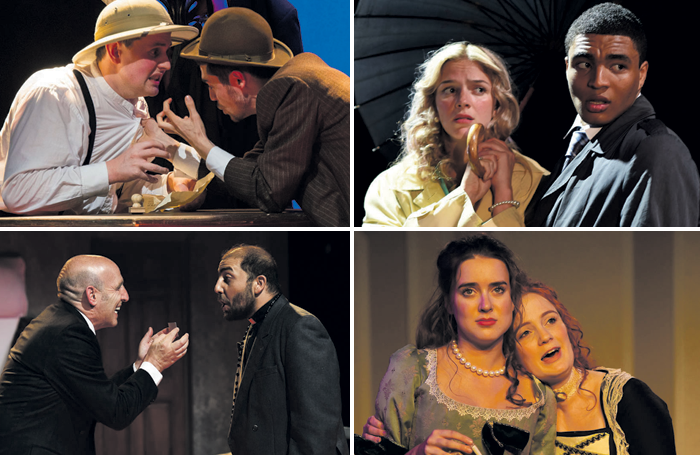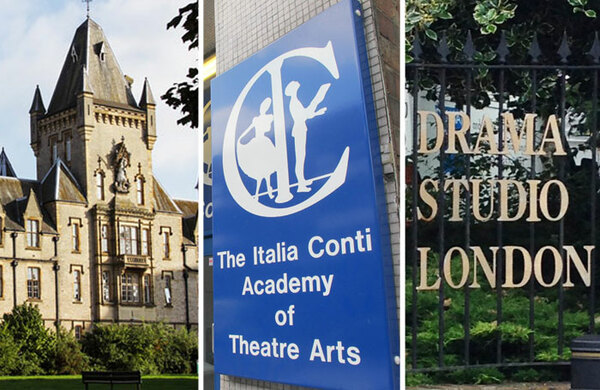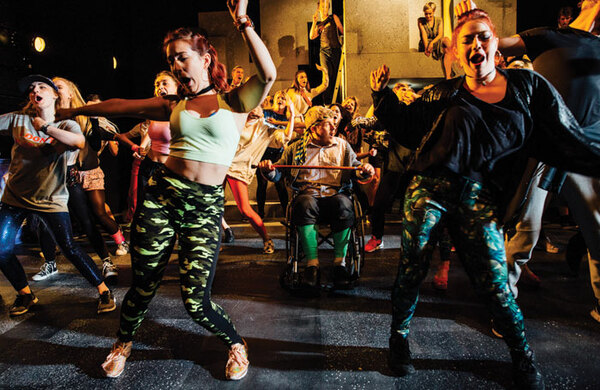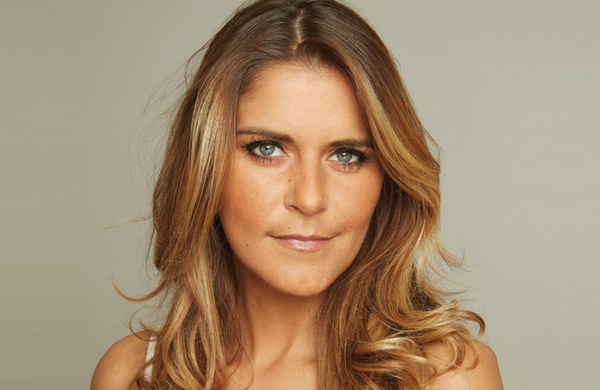Drama Studio London: Helping you find your unique talents to set you on the path to success
By not focusing on one specific technique, Drama Studio London gives its students the opportunity to develop their own individual style, building on a firm foundation of vocal and physical training from industry professionals
For more than half a century, Drama Studio London has been renowned for delivering a world-class training for the profession by the profession.
The training each student receives is rooted in what suits them and matches their talents. Or, as alumnus Rune Temte puts it: “Drama Studio London gives different approaches, ideas and tools to achieve the ultimate goal: getting work.”
A lot has changed since Drama Studio London’s managing director Kit Thacker trained as an actor in the early 1970s. “When I went to drama school, I arrived with a mild Coventry accent. By the time I left two years later I spoke in reasonably standard southern tones.”
As he explains: “The vast majority of actors in those ancient times were white and hovering somewhere around what is loosely called middle class.”
But society has changed radically, and so must the way that actors are trained. Instead of churning out identikit graduates moulded to a particular ‘type’, Drama Studio London believes good training is about nurturing what makes each student unique.
Alumnus Ashwin Mushran says: “The school never forced a particular method of acting down our throats. It encouraged us to find our individual styles.”
That starts at the audition stage. Everyone who walks into the room brings their own lifetime of experience and influence with them, and Drama Studio London’s teachers – who are all active industry professionals – strive to build on those foundations, rather than trying to start all over again.
Recent graduate Lorin Merhart describes his experience at Drama Studio London: “As an international student, it is a vulnerable thing to come to another country that you don’t know anything about. However, when I came to DSL all those feelings vanished and I felt the warmth of a family. DSL has given me an incredible amount of self-belief. It has shaped me as the person I am today with all the highs and lows. It taught me that it’s okay to feel and express it freely through my acting.”
Auditions are about discovering the candidate’s individuality. “We decide if we are confident that we can add the skills to help this unique person become the most marketable, professional, creative artist possible,” says Thacker. “We cannot give the art, we can give the skill.”
The fact is, if auditions are to be thorough and fair, then they are expensive for drama schools. At Drama Studio London, four different people will see each applicant work both individually and in collaboration on text and improvisation. The teachers also spend a lot of time providing considered and detailed feedback to applicants, advice which will be invaluable for their next audition.
However, the school works extremely hard to make sure that anyone can apply, regardless of income: it offer roadshow auditions, it organises group auditions with other drama schools, and it provides subsidy. The school ensures first-round and recall auditions take place on the same day to minimise the cost of travel for applicants. It also offers free workshops for South East Asian people who are interested in training.
Drama Studio London’s training is tried and true: for more than 50 years it has taught students on the principle of 50% coursework and 50% practical work, growing in complexity as the course progresses.
In its script work, the school is always keeping an eye out for new writing by writers of all backgrounds and from all over the world. Former student Richard Stott says: “My training at DSL not only prepared me to tackle scripts, but gave me a deep understanding of what makes a performance work. This has helped me create my own successful shows.”
As well as one-year and two-year diplomas in Professional Acting, the school also offers a three-year BA (hons) in Professional Acting in partnership with the University of West London.
That’s not just for people coming out of school: throughout its five-decade history, Drama School London has always had a reputation for welcoming mature students. For Thacker, having mature students alongside 18-year-olds on the degree courses is “invaluable for all”.
Even if the media through which actors do their work has changed, Thacker believes that the fundamental building blocks of being an actor have remained constant: actors need a strong voice capable of meaningful variation; physical flexibility within their ability to help transform them into other people; confidence to sing, to move, even to fight (in a choreographed context, of course); and, importantly, a good knowledge of the changing demands of different media.
As Thacker points out: “Where technology is going to go in the next decade is hidden in the mist of our crystal balls, but what we can provide is an excitement, and an agile mind in each of our graduates.”
Of course, not every student will go on to become a professional actor, but training at Drama Studio London still offers extremely valuable skills: “DSL showed me that I don’t just have to be an actor,” explains recent graduate Honey Gabriel. “That my creativity can be used in different avenues from writing and directing, to producing. DSL gave me the confidence to think outside the box in terms of what I want my career to look like.”
A student’s relationship with the school continues even when training comes to an end. Alumnus Tim Blore praises the “continued support I have received from students, staff and alumni of DSL since graduating – it prepared me so well because the faculty has first-hand knowledge of the industry”.
It’s the whole package, as former student Esme Sears explains: “I feel I was given a whole set of tools to keep myself positive, motivated, constantly creative and self-sufficient over the years, in a way that is adapting and changing and self-loving to avoid physical or emotional burnout. But the most important thing I acquired was a pride in what I have to offer as an individual.”
But overall the training at Drama Studio London is dedicated to finding out, and capitalising on, who the actor is and what they bring to the rehearsal room. This uniqueness is what they will be employed for and will be the basis of a long and successful career.
More about this organisation
Most Read
Across The Stage this weekYour subscription helps ensure our journalism can continue
Invest in The Stage today with a subscription starting at just £5.99









